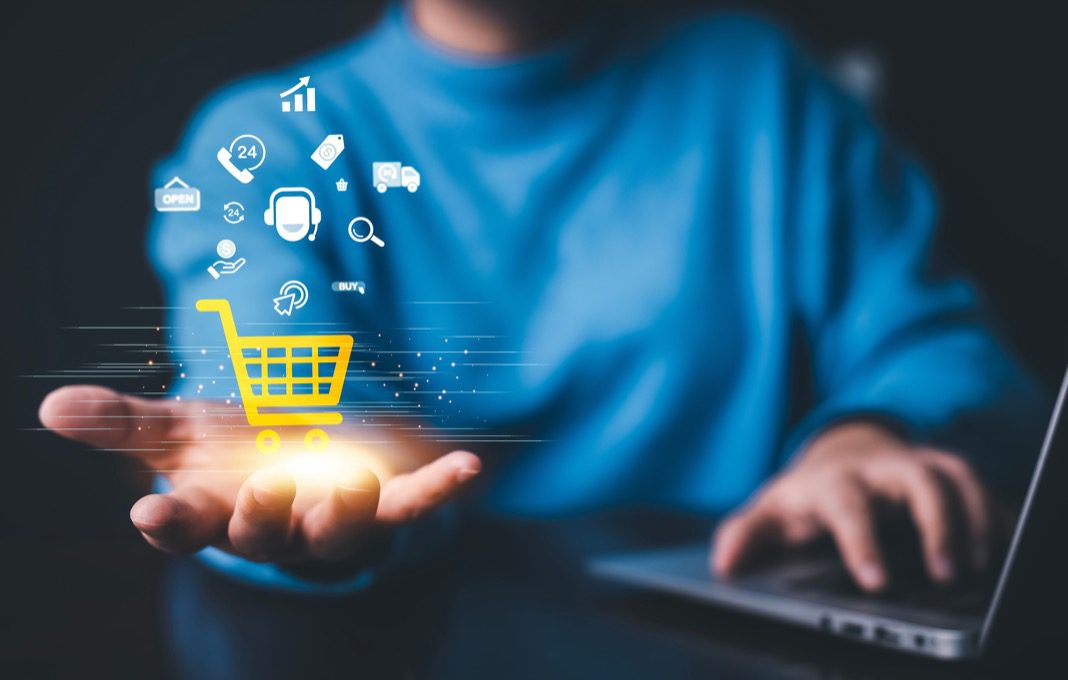From Empowerment To Entrustment: Redefining Creator–Consumer Relationships


Why would one of the top contemporary artists in the world whom his top selling creation Lullaby Spring sold for $19.3 Million suggest creating his next piece with you?

This is exactly what the British artist, Damien Hirst, offered not just to one individual but to everyone in a special 10-day project during April 2023. Using the popular spin art concept, Hirst offered a collaboration in which you, the consumer, can choose the creation’s colors, then select the spin art style and ultimately generate your own creation. Upon completion of your creation, Damien Hirst will sign it, produce it and sell it to you. These creations were available from $1500 a piece to $6000 a piece. (You can see my own art generated by Hirst tools. No, I did not purchase it.)
While commissioned art has existed for years, this was a vastly different project. Commissioned art is fully controlled by the artists from the outcome to the process, and the actual creation of the creation. It is all subject to the artist’s ultimate judgement and decisions. In the new Hirst project, the roles were quite different. The consumer was almost fully in charge. They selected everything from color to spin art style and conducted the art generation. They could run the art generation endless times until they obtained what they loved. The artist provided the technology, production and his signature. Unlike commissioned art, the artist did not have a veto vote, everything goes. Lastly, it was offered to everyone regardless of skill or any other qualification. This was not just a collaboration but rather a new level of consumer-creator relationship.
This is not the first time that Damien Hirst has shown his innovative genius. Last year he offered a unique art created by him this time, but empowering consumers to decide if they wish to receive the physical creation or its NFT version. Those who opted for the NFT version witnessed it as Hirst burned the physical version of that piece of art.
Some will dismiss this as a marketing stunt by a well-known artist who experiments with methods and creativity. I would like to propose that this project goes beyond a superficial stunt for money generation. It represents a much deeper structural change in creator-consumer relationships that every business ought to pay attention to.
When Coca-Cola launched their Freestyle machines, they conducted an act of release. They released the power of concocting drinks for their consumers. They recognized that with consumer power, they can no longer control the brand. Every consumer is a brand that will complement their personal brand with the drink they want at the moment. That drink will be changed next time around as consumers always evolve. From the company that invented the Cola and held its secret recipe for over 130 years, this was not a simple act. It required an honest recognition of the true power of consumers in a digitally empowered era.
Covid only accelerated the trends. As people around the world have seen their traditional authorities collapse in lack of knowledge of how to manage the pandemic, they realized they are their own authorities. If social media gave rise to the personal brand on a large scale, the collapse of authorities during Covid further institutionalized it into the mainstream. The recent Harvard Business Review magazine dedicated its cover to improving your personal branding, further proof of the mainstream nature of the individual as a brand. We are now facing a world in which every consumer is a brand and fully empowered to do whatever she wants.
This structural shift has meant that producers and creators assume a new role. They are no longer the destination, but rather the tool kit. Each consumer will use those tools as they see fit. In the case of Coca-Cola, the consumer will shift from Coke Zero to a new drink which may include 35% Fanta, 274 Sprite Cherry and the rest Dr. Pepper Diet. A brand-new drink that suits the current mood of that specific consumer. The next day the process will start again using the tool kit to create a different drink that will suit that specific mood and mindset. While consumers could have done so in the past, Coca-Cola was never the enabler of such experimentation and self-creation. It is the Freestyle machines that changed everything by formally releasing power to consumers to do as they wish.
This new role is called entrustment. It goes beyond empowerment and into entrusting your tools, creations, technology into the hands of millions who will use them in their own way and craft with them outcomes that you were not originally intended or may even find offensive or disgusting (in the case of the Coca-Cola Freestyle I can testify to this issue as I tasted my children’s creations).
For years, traditional brands functioned as a desired destination and promoted their product as desirable objects that will satisfy hidden needs. That era is over. Consumers today look at products as merely tools to be rearranged and crafted to fit their own brand desired image. The brand they nurture in their social networks and IRL (“in real life”—I had to use it) presence. During a recent conversation with a clothing manufacturer, I was asked why we bother with labels since young consumers simply cut them. The highly sought-after brand labels infused with sometimes hundreds of millions of dollars invested in building the brand equity are cut and removed in matter of seconds by millions of consumers today. Why? Because they are no longer buying a destination brand. They are purchasing a tool kit product to assemble their personal and often highly visible brand.
The entrustment era is characterized by a role reversal. Consumers create the final product that represents their brand—a one and only brand unlike no one else. The manufacturers provide the tool kit to create those brands. Assuming this reversed role requires a great deal of humility and openness. Recognizing that your real value is a form of building blocks, and the consumer is entrusted with the outcome requires a recognition that despite your technological prowess and resources, the ultimate result is not in your hands. For years, the mantra of “the customer is right” was repeated at many organizations, but they behaved in a vastly different way, taking consumers for granted and dictating to them products and solutions.
Beyond humility, the actual process of value creation through tool kit will have to be adapted with new listening skills, creation process, safety guidelines and ongoing support to maintain the success of the crafted solution. The fact that your tools may create millions of different individualized solutions requires a new preparation for serving customers, as well.
Despite his huge decades long success, Damien Hirst recognized the shift in consumers’ mindsets; they are all acting as creators. And ChatGPT and new AI tools are only going to make it worse. Mr. Hirst decided not to fight the trends but rather to monetize them (and in that regard, he is a brilliant marketing person). The bragging right of “I created this, and Damien Hirst signed it” is worth thousands of dollars to many consumers. While I am confident that he will continue to create his own masterpieces that will be sold for millions of dollars, this experiment is just the beginning. There are many questions around intellectual property ownership that are yet to be resolved, but the trend is out there. Just look at the way people use music and repost TikTok videos without paying for any of them. They add their own commentary, create their own dance, and ultimately turn them into an expression of their own personal brand. Officially entrusted or not, they simply do it.
As consumers continue to push the envelope of their personal brand, they will demand entrustment and not just empowerment. The world will belong to those who will not try to fight the trend but rather find new ways of value creations that will monetize it.

Chief Executive Group exists to improve the performance of U.S. CEOs, senior executives and public-company directors, helping you grow your companies, build your communities and strengthen society. Learn more at chiefexecutivegroup.com.
0

1:00 - 5:00 pm
Over 70% of Executives Surveyed Agree: Many Strategic Planning Efforts Lack Systematic Approach Tips for Enhancing Your Strategic Planning Process
Executives expressed frustration with their current strategic planning process. Issues include:
Steve Rutan and Denise Harrison have put together an afternoon workshop that will provide the tools you need to address these concerns. They have worked with hundreds of executives to develop a systematic approach that will enable your team to make better decisions during strategic planning. Steve and Denise will walk you through exercises for prioritizing your lists and steps that will reset and reinvigorate your process. This will be a hands-on workshop that will enable you to think about your business as you use the tools that are being presented. If you are ready for a Strategic Planning tune-up, select this workshop in your registration form. The additional fee of $695 will be added to your total.

2:00 - 5:00 pm
Female leaders face the same issues all leaders do, but they often face additional challenges too. In this peer session, we will facilitate a discussion of best practices and how to overcome common barriers to help women leaders be more effective within and outside their organizations.
Limited space available.

10:30 - 5:00 pm
General’s Retreat at Hermitage Golf Course
Sponsored by UBS
General’s Retreat, built in 1986 with architect Gary Roger Baird, has been voted the “Best Golf Course in Nashville” and is a “must play” when visiting the Nashville, Tennessee area. With the beautiful setting along the Cumberland River, golfers of all capabilities will thoroughly enjoy the golf, scenery and hospitality.
The golf outing fee includes transportation to and from the hotel, greens/cart fees, use of practice facilities, and boxed lunch. The bus will leave the hotel at 10:30 am for a noon shotgun start and return to the hotel after the cocktail reception following the completion of the round.